
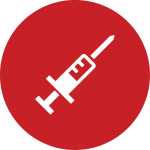
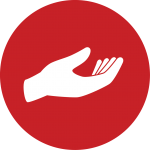
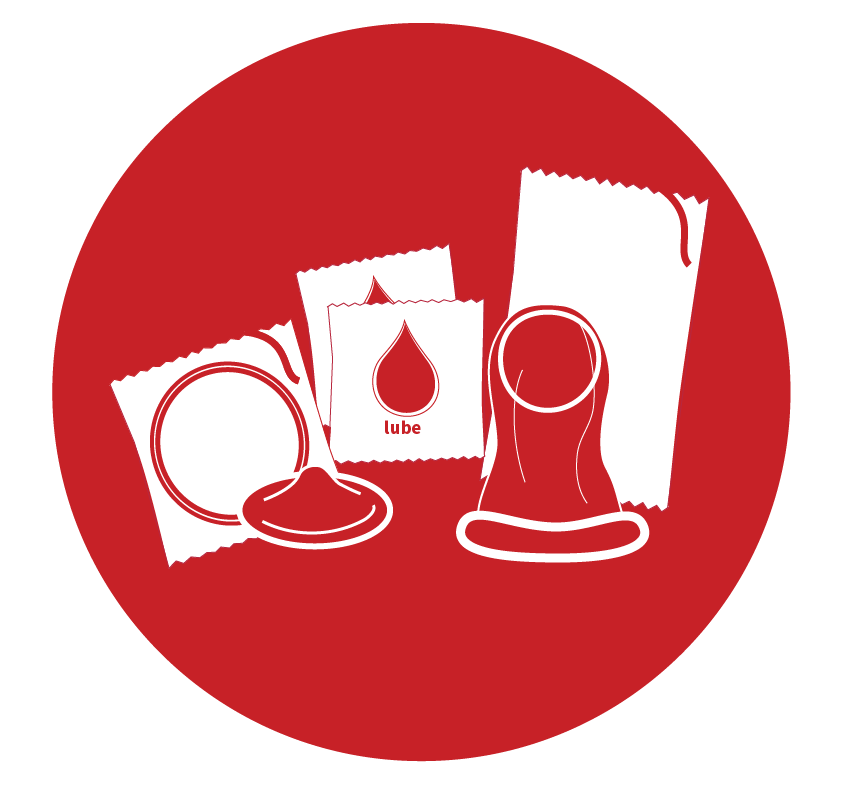

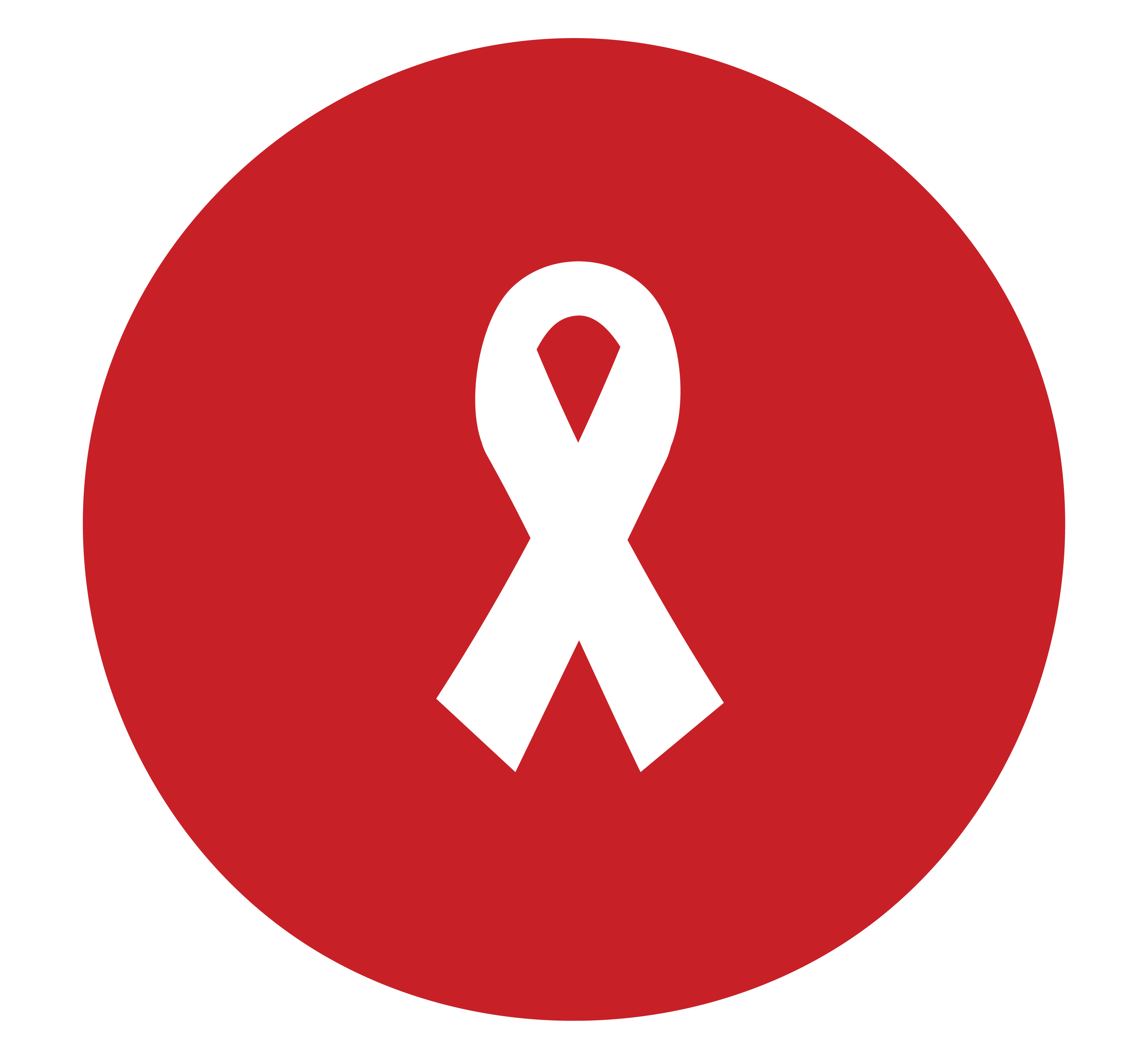
Réseau ACCESS Network’s harm reduction service operates 7 days a week, offering sterile harm reduction supplies, naloxone, practical support, education, trainings, and vital connections to services in the Greater Sudbury Area.
The Agency’s services are underpinned by the belief that people are the experts in their own lives. Harm reduction works to mitigate the harms that can come from drug use, without the expectation for one to stop using.
The Harm Reduction Continuum of Care
The harm reduction continuum of care refers to a set of strategies and interventions that aim to minimise the negative consequences associated with drug use. It acknowledges that not everyone is ready or willing to abstain from drug use and instead focuses on reducing harm and promoting safer practices.
The continuum of care typically includes a range of services and interventions that progress from the least to the most intensive based on individual needs and goals. Réseau ACCESS Network supports the following services through in-house programming, referral, and accompaniment.
- Information and education: The team and network provide accurate and up-to-date information about drugs, their effects, and safer use practices. This helps individuals make informed decisions and reduce the risks associated with drug use. Information on toxic drug overdoses and deaths is disseminated through the team and network. See the education section for Réseau ACCESS Network’s changing offerings.
- In-Reach|Outreach and engagement: Réseau ACCESS Network offers 7-day-a-week services to connect with People Who Use Drugs (PWUD) and engage in services and support. This includes meeting people where they are, building trust and rapport, and connecting them to appropriate resources. The agency partners with The Red Coats, which provides outreach services by L’Association Des Jeunes De La Rue Inc., which provides services to people living rough. Any donations received (coats, blankets, tents, etc.) are given to the Red Coats, which offers direct services provision and transportation.
- Needle and syringe programs: Réseau ACCESS Network provides access to sterile needles, syringes, and other drug-use equipment to individuals who use drugs. This helps prevent the spread of blood-borne infections, such as HIV and hepatitis C, promotes safer injection practices, and offers engagement and referral services. Réseau ACCESS Network also provides wipes (bath in a bag), sexual health supplies, season-dependent sunscreen, bug repellent, and hand warmers. Réseau ACCESS Network partners with the
- Drug checking: Testing strips (as available) are offered to check the contents of drugs. This helps individuals make informed decisions about drug use and reduces the risk of accidental overdose or adverse reactions. Sudbury’s SCS provided in-house drug checking services through the federal section 56 exemption.
- Safe consumption sites Provide supervised facilities where individuals can use drugs under the watch of trained staff. These sites offer a safe and hygienic environment, access to sterile equipment, and health support in case of overdose. Alongside these services, wrap-around provision of social and health services was provided. Réseau ACCESS Network’s SCS The Spot closed on March 31, 2024, and awaits word from the MOH as to its CTS application.
- Safe Supply: Provides prescribed medications as a safer alternative to the toxic illegal drug supply for people at high risk of overdose. This approach aims to reduce the risks associated with drug use in a criminalized context, decrease overdose deaths, and improve overall health outcomes by offering regulated pharmaceutical-grade substances. Réseau ACCESS Network applied through SUAP for a Safe Supply program with wrap-around supports – unfortunately, the application was unsuccessful.
- Mental health services: The Réseau ACCESS Network team addresses co-occurring mental health conditions and provides brief counselling, group sessions, mindfulness training, art groups, and other support services. Wrap-around services help individuals cope with underlying issues that may contribute to drug use and support their overall well-being. NISA/Northern Initiative for Social Action offers a wide range of MH programs to which the agency refers members/patients.
- Housing support: Referring and supporting individuals in finding stable and safe housing options. These services help address social determinants of health and provide stability.
- Peer Support Programs: For 15+ years the agency has included People With Lived and Living Experience/Expertise (PWLLE). Utilising the lived experiences of individuals who may be actively using or engaged in recovery programs or treatment. The agency works alongside individuals engaging in paid training and community outreach. Peer support workers offer brief emotional and social support, creating community connections and providing overdose response. Members’ lived experiences are valuable assets, fostering mutual empowerment and understanding.
Treatment Models: Réseau ACCESS Network works with members/patients who use drugs and wish to attend treatment to find the best fit and availability. Some services include:
- Land-Based Indigenous Treatment: Incorporates traditional Indigenous healing practices that connect individuals with the land, culture, and community. This approach may include sweat lodges, healing circles, and other ceremonies rooted in Indigenous knowledge and spirituality. Facilitated by Indigenous healers, knowledge keepers, and/or Elders, these practices aim to restore balance and harmony in individuals’ lives, addressing wellness holistically – physically, mentally, emotionally, and spiritually.
- Mindfulness-Based Therapies: Incorporate meditation and mindfulness practices to help individuals become more aware of thoughts and triggers, teaching skills to manage cravings and emotions without using substances.
- Therapeutic/Residential Communities: Short-term and Long-term residential treatment programs that provide highly structured environments focused on resocialization. These programs typically last 2-12 months or longer.
- Opioid agonist therapy (OAT): Referrals and accompaniment to OATs treatment services as requested. Offering medications that help manage withdrawal symptoms and cravings, such as methadone or buprenorphine, alongside counselling and support services. The therapy involves taking the opioid agonists methadone (Methadose) or buprenorphine (Suboxone).
- Outpatient Treatment: Allows individuals to live at home while receiving treatment, ranging from intensive daily programs to weekly counselling sessions. This approach provides flexibility for those with work or family commitments.
- 12-Step Programs: A structured approach based on the principles of Alcoholics Anonymous and similar programs. It emphasizes acceptance, surrender, and active involvement in recovery, preparing individuals to engage in 12-step mutual support groups.
- Cognitive Behavioral Therapy (CBT): Focuses on identifying and changing negative thought patterns and behaviours related to substance use. It teaches coping skills and strategies to prevent relapse and can be done individually or in groups.
The harm reduction continuum of care recognises the importance of meeting people where they are in their drug use journey and offering a range of support options. Réseau ACCESS Network offers a wide variety of wrap-around services and has created partnerships and relationships with service providers to provide warm referrals and accompanied support when requested. The agency promotes an individualised and member/patient-centred approach that focuses on reducing harm, improving overall health and well-being, and supporting individuals where they are in their substance use journey.
What is Harm Reduction?
Learn the basics of harm reduction principles by visiting the Ontario Harm Reduction Network, CATIE, and National Harm Reduction Coalition.
Resources for People who Use Drugs
National Overdose Response Line – 1 – (888) – 688 – NORS (6677) | nors.ca
Canadian Association of People who Use Drugs (CAPUD) – https://www.capud.ca/resources
Sharps Disposal - Learn How
Found a sharp? Here’s what to do! https://www.phsd.ca/clinics-classes-events/point-harm-reduction-supplies-services/safe-needle-disposal/
Stuck by a Needle?
Here’s what to do – https://www.catie.ca/post-exposure-prophylaxis-pep
CAF Programming Summary 2022-2027
The PHAC funded program will be seeing significant changes if we are approved to moved forward in April 2022. Funding will be for April 2022 until March 2027.
The Réseau ACCESS Network Peer Engagement Program will now be the lead in a new alliance. The Northern Alliance Committee (NAC) will meeting quarterly to provide project insight and will focus on knowledge mobilization and exchange. Much of that focus will be determining training needs, resource sharing, observed trends, and determine opportunities for collaboration. A community code of conduct/group will be developed by members of the alliance and be peer reviewed for all agencies involved.
Each city will recruit and appoint two peers with living experience for the Community Advisory Committee (CAC) to lead and guide engagement, training and relationship building. Monthly virtual ‘social events’ lead by CAC members will be scheduled.
A Project Working Group (PWG) of Peer Engagement Coordinators will be created and will meet monthly to build a community of practice across organizations & coordinate project activities.
Peer Engagement Coordinators will create and moderate a monthly private virtual community for peers across region. As Peers increase capacity and peer leadership skills, they will take over facilitation.
A central online training platform for relevant online peer trainings will be created and maintained.
Quarterly cultural safety and anti-stigma training to the NAC.
Quarterly cultural safety and anti-stigma training to community service providers.
Community outreach and intervention shifts (22 outreach shifts a month) across NAC.
Draft new trainings with integrated information from past trainings with new information. Peer reviewed.
Recruit new people from key populations to peer training
Deliver peer training sessions
Review existing cultural safety and stigma trainings annually
HIV / Hep C / STBBI Testing
Interested in testing? Visit the clinical services page by clicking here
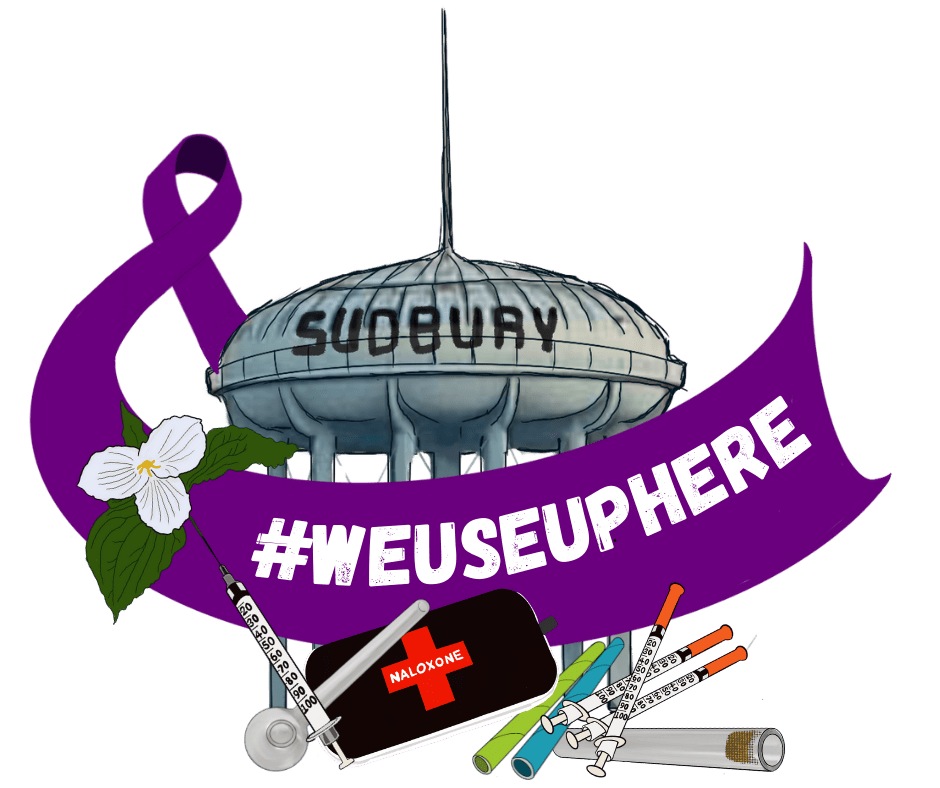
Street Outreach
The Street Outreach program works directly in community alongside and with people who use drugs, encouraging health promotion through the provision of education and sterile supplies. The Agency’s in-reach service provides an inclusive and welcoming environment for community members to acquire safer smoking, injection, and sex supplies with immediate linkages to health and social services available 7 days a week.
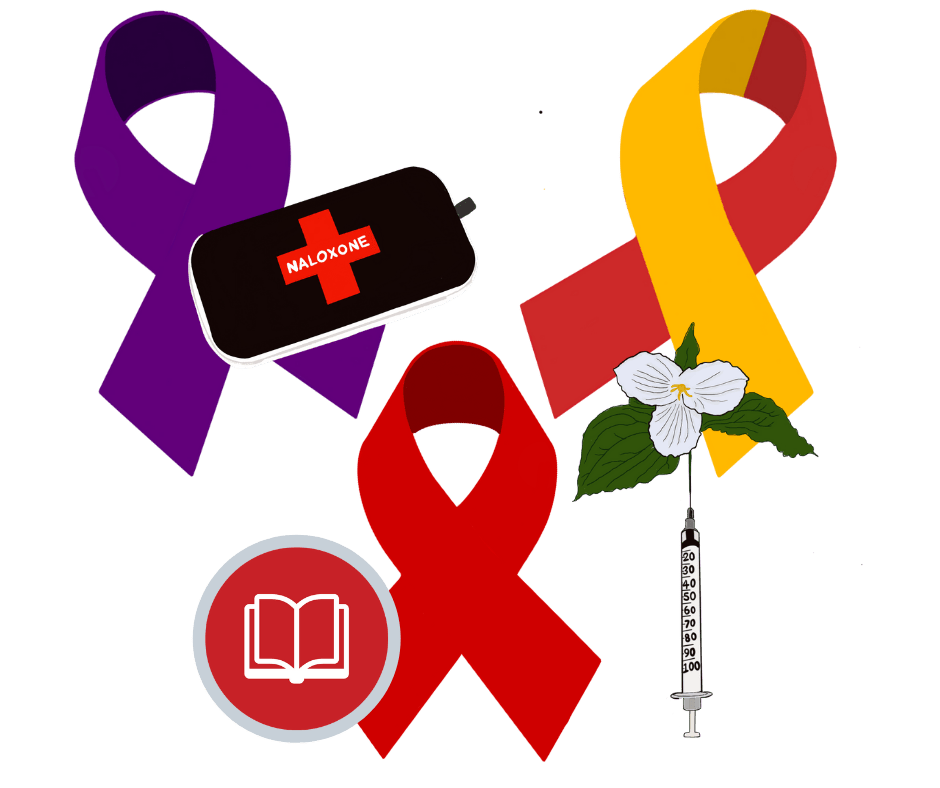
Training Available
Réseau ACCESS Network offers an array of educational workshops centered around the principles of harm reduction, and how it can limit the risk Hepatitis C and HIV. The Agency offers collaborative trainings on the usage of naloxone and provide some critical analysis of its role in the contemporary drug poisoning crisis happening in society. The trainings can happen both in-person, or virtually depending on your educational needs. Please check the drop-down menu for further information about trainings available.
Harm Reduction Outreach Program
Hours of Operation:
In-reach Hours:
Monday – Friday 9:30 AM – 4 PM
Thursday – 1 PM to 4 PM
Please note we are closed for lunch from 12 PM (noon) to 1 PM
*hours may change around holidays
Outreach Hours:
Monday – Friday 4/5PM – 7/8PM
Saturday & Sunday – 12PM – 3PM
View the Agency’s location & address.
Other services offered:
Used needle drop off: 9:30 am to 4 pm
Naloxone distribution
Rural and encampment outreach – please call 705-688-0500
